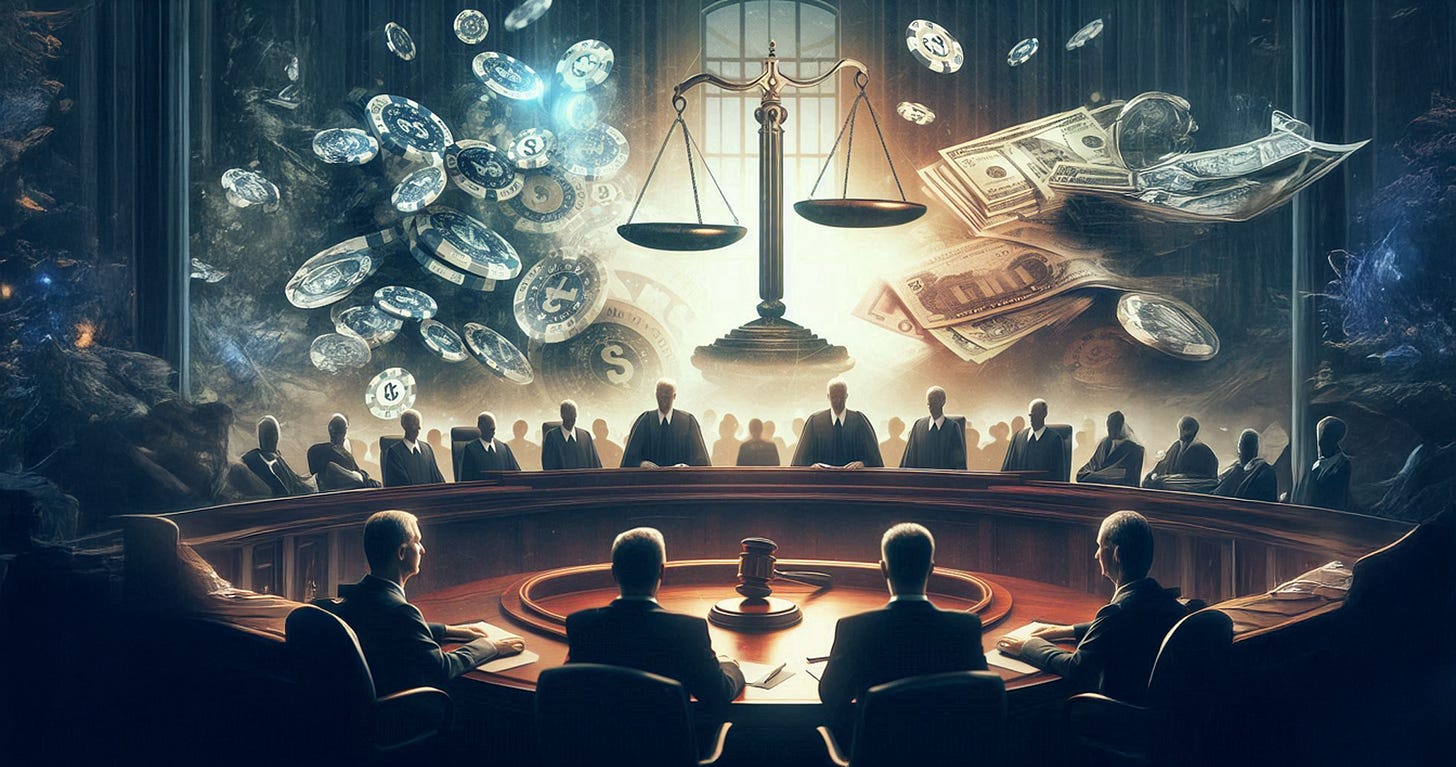Gaming vs. Gambling: The Fight for Clarity in Kalshi’s Event Contracts
The Court of Appeals for the D.C. Circuit saw through the ambiguity. The CFTC missed its moment.
It's kind of a weird list. It's like
Any state law; and then
Horrible;
Horrible;
Horrible; and then
Gaming.
I just don't know what this list is.
Bingo! In as few words as possible. The Court of Appeals for the D.C. Circuit perfectly described the situation. The list they were referring to, of course, is the special rule for event contracts. More specifically, the Court was referring to the enumerated categories in (i) through (v) below:
(C) Special rule for review and approval of event contracts and swaps contracts
(i) Event contractsIn connection with the listing of agreements, contracts, transactions, or swaps in excluded commodities that are based upon the occurrence, extent of an occurrence, or contingency (other than a change in the price, rate, value, or levels of a commodity described in section 1a(2)(i) [2] of this title), by a designated contract market or swap execution facility, the Commission may determine that such agreements, contracts, or transactions are contrary to the public interest if the agreements, contracts, or transactions involve—
(I) activity that is unlawful under any Federal or State law;
(II) terrorism;
(III) assassination;
(IV) war;
(V) gaming; or
(VI) other similar activity determined by the Commission, by rule or regulation, to be contrary to the public interest.
It wasn’t Congress’s best drafting work. The law was ambiguous and that ambiguity is precisely what Kalshi was able to cash in on.
Eminem said it best: “He opens his mouth, but the words don’t come out.” Congress had the unenviable task of fixing finance as much as possible with one giant bill. Constructing the Dodd-Frank Wall Street Reform and Consumer Protection Act, or Dodd-Frank for short, wasn’t an easy task:
At more than 360,000 words and 2,300 pages in length, the Dodd-Frank Act represents the “longest and most complex piece of financial regulation in American history.”
Perhaps it wasn’t the best piece of drafting but once you factored in 100 years of history as well as the colloquy between Senator Feinstein and Senator Lincoln, was it really that far-fetched to conclude that Congress’s main goal was, and has always been, to prevent gambling?
We don’t think so and neither did the Court of Appeals for the D.C. Circuit.




